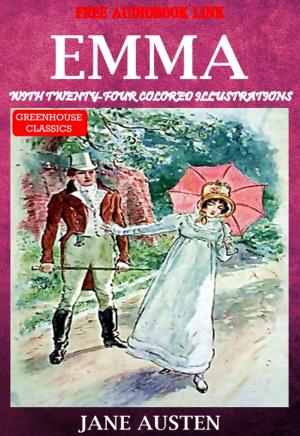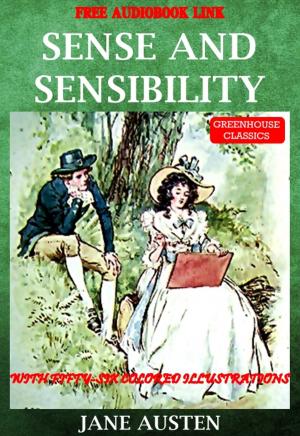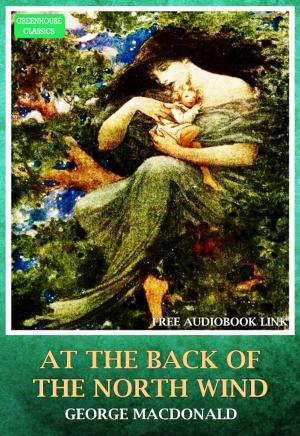The Tao Teh King (Complete )(Free Aduiobook Link)
Nonfiction, Religion & Spirituality, Philosophy, Ancient, Eastern, Religious| Author: | Lao-Tse, Translated by James Legge | ISBN: | 1230000185277 |
| Publisher: | Greenhouse Classics | Publication: | September 15, 2013 |
| Imprint: | Language: | English |
| Author: | Lao-Tse, Translated by James Legge |
| ISBN: | 1230000185277 |
| Publisher: | Greenhouse Classics |
| Publication: | September 15, 2013 |
| Imprint: | |
| Language: | English |
Laozi is traditionally regarded as the author of the Daodejing (Tao Te Ching), though the identity of its author(s) and/or compiler(s) has been debated throughout history. It is one of the most significant treatises in Chinese cosmogony. As with most other ancient Chinese philosophers, Laozi often explains his ideas by way of paradox, analogy, appropriation of ancient sayings, repetition, symmetry, rhyme, and rhythm. In fact, the whole book can be read as an analogy - the ruler is the awareness, or self, in meditation and the myriad creatures or empire is the experience of the body, senses and desires. Passages such as "Block the openings, shut the doors" and "the sage who does nothing never ruins anything" refer to sitting in meditation. "Keep the people ignorant" means do not pay attention to the senses and thoughts.
The Tao Te Ching, often called simply Laozi after its reputed author, describes the Dao (or Tao) as the source and ideal of all existence: it is unseen, but not transcendent, immensely powerful yet supremely humble, being the root of all things. According to the Daodejing, humans have no special place within the Dao, being just one of its many ("ten thousand") manifestations. People have desires and free will (and thus are able to alter their own nature). Many act "unnaturally", upsetting the natural balance of the Dao. The Daodejing intends to lead students to a "return" to their natural state, in harmony with Dao.[28] Language and conventional wisdom are critically assessed. Taoism views them as inherently biased and artificial, widely using paradoxes to sharpen the point.
Livia Kohn provides an example of how Laozi encouraged a change in approach, or return to "nature", rather than action. Technology may bring about a false sense of progress. The answer provided by Laozi is not the rejection of technology, but instead seeking the calm state of wu wei, free from desires. This relates to many statements by Laozi encouraging rulers to keep their people in "ignorance", or "simple-minded". Some scholars insist this explanation ignores the religious context, and others question it as an apologetic of the philosophical coherence of the text. It would not be unusual political advice if Laozi literally intended to tell rulers to keep their people ignorant. However, some terms in the text, such as "valley spirit" (gushen) and "soul" (po), bear a metaphysical context and cannot be easily reconciled with a purely ethical reading of the work.
Wu wei , literally "non-action" or "not acting", is a central concept of the Daodejing. The concept of wu wei is multifaceted, and reflected in the words' multiple meanings, even in English translation; it can mean "not doing anything", "not forcing", "not acting" in the theatrical sense, "creating nothingness", "acting spontaneously", and "flowing with the moment."
It is a concept used to explain ziran , or harmony with the Dao. It includes the concepts that value distinctions are ideological and seeing ambition of all sorts as originating from the same source. Laozi used the term broadly with simplicity and humility as key virtues, often in contrast to selfish action. On a political level, it means avoiding such circumstances as war, harsh laws and heavy taxes. Some Taoists see a connection between wu wei and esoteric practices, such as zuowang "sitting in oblivion" (emptying the mind of bodily awareness and thought) found in the Zhuangzi.
Some of Laozi's famous sayings include:
"When goodness is lost, it is replaced by morality."
"The usefulness of a pot comes from its emptiness."
"The best people are like water, which benefits all things and does not compete with them. It stays in lowly places that others reject. This is why it is so similar to the Way."
"When people see some things as beautiful, other things become ugly. When people see some things as good, other things become bad."
“Try to change it and you will ruin it. Try to hold it and you will lose it.”
—Laozi, Tao Te Ching
Laozi is traditionally regarded as the author of the Daodejing (Tao Te Ching), though the identity of its author(s) and/or compiler(s) has been debated throughout history. It is one of the most significant treatises in Chinese cosmogony. As with most other ancient Chinese philosophers, Laozi often explains his ideas by way of paradox, analogy, appropriation of ancient sayings, repetition, symmetry, rhyme, and rhythm. In fact, the whole book can be read as an analogy - the ruler is the awareness, or self, in meditation and the myriad creatures or empire is the experience of the body, senses and desires. Passages such as "Block the openings, shut the doors" and "the sage who does nothing never ruins anything" refer to sitting in meditation. "Keep the people ignorant" means do not pay attention to the senses and thoughts.
The Tao Te Ching, often called simply Laozi after its reputed author, describes the Dao (or Tao) as the source and ideal of all existence: it is unseen, but not transcendent, immensely powerful yet supremely humble, being the root of all things. According to the Daodejing, humans have no special place within the Dao, being just one of its many ("ten thousand") manifestations. People have desires and free will (and thus are able to alter their own nature). Many act "unnaturally", upsetting the natural balance of the Dao. The Daodejing intends to lead students to a "return" to their natural state, in harmony with Dao.[28] Language and conventional wisdom are critically assessed. Taoism views them as inherently biased and artificial, widely using paradoxes to sharpen the point.
Livia Kohn provides an example of how Laozi encouraged a change in approach, or return to "nature", rather than action. Technology may bring about a false sense of progress. The answer provided by Laozi is not the rejection of technology, but instead seeking the calm state of wu wei, free from desires. This relates to many statements by Laozi encouraging rulers to keep their people in "ignorance", or "simple-minded". Some scholars insist this explanation ignores the religious context, and others question it as an apologetic of the philosophical coherence of the text. It would not be unusual political advice if Laozi literally intended to tell rulers to keep their people ignorant. However, some terms in the text, such as "valley spirit" (gushen) and "soul" (po), bear a metaphysical context and cannot be easily reconciled with a purely ethical reading of the work.
Wu wei , literally "non-action" or "not acting", is a central concept of the Daodejing. The concept of wu wei is multifaceted, and reflected in the words' multiple meanings, even in English translation; it can mean "not doing anything", "not forcing", "not acting" in the theatrical sense, "creating nothingness", "acting spontaneously", and "flowing with the moment."
It is a concept used to explain ziran , or harmony with the Dao. It includes the concepts that value distinctions are ideological and seeing ambition of all sorts as originating from the same source. Laozi used the term broadly with simplicity and humility as key virtues, often in contrast to selfish action. On a political level, it means avoiding such circumstances as war, harsh laws and heavy taxes. Some Taoists see a connection between wu wei and esoteric practices, such as zuowang "sitting in oblivion" (emptying the mind of bodily awareness and thought) found in the Zhuangzi.
Some of Laozi's famous sayings include:
"When goodness is lost, it is replaced by morality."
"The usefulness of a pot comes from its emptiness."
"The best people are like water, which benefits all things and does not compete with them. It stays in lowly places that others reject. This is why it is so similar to the Way."
"When people see some things as beautiful, other things become ugly. When people see some things as good, other things become bad."
“Try to change it and you will ruin it. Try to hold it and you will lose it.”
—Laozi, Tao Te Ching















